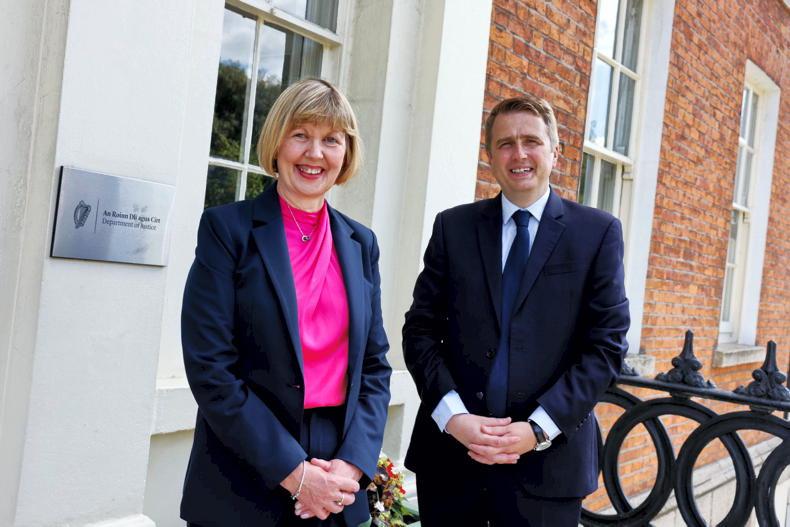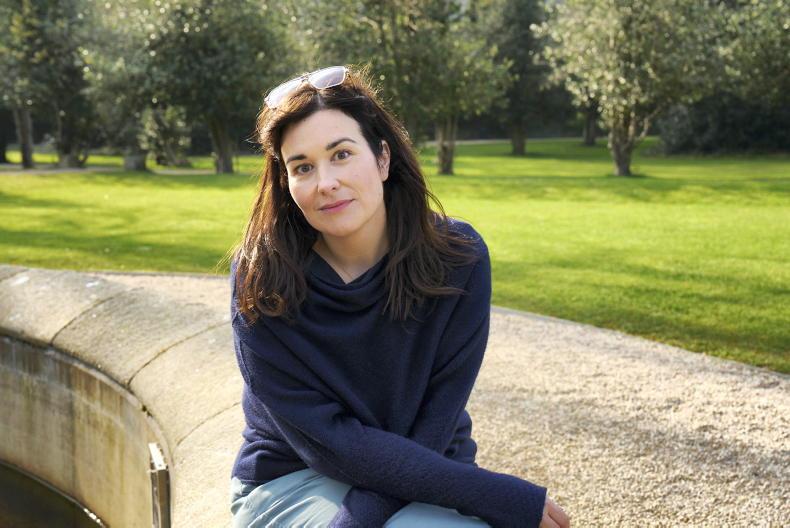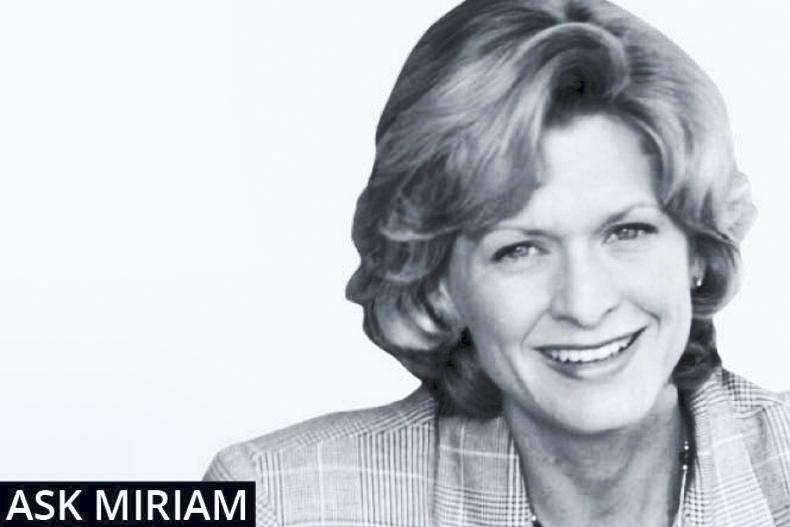Problem gambling is on the rise in Ireland with the latest research from the Economic and Social Research Institute estimating that one in 30 adults identify as a problem gambler – a tenfold increase on levels recorded in previous ESRI research published in 2019.
Efforts to regulate gambling in this country have progressed in recent weeks with the launch of a new statutory body, the Gambling Regulatory Authority of Ireland, which has been established to regulate gambling, gaming and betting activities.
The new authority will implement the Gambling Regulation Act 2024, passed last year as the first new legislation in this area in almost 70 years.
The Act provides for a new social impact fund, which will finance research into, raise awareness of, and eliminate or reduce, compulsive and excessive gambling.
The legislation also contains a commitment to a national gambling exclusion register, aimed at helping people experiencing problem gambling to remove themselves from the temptation of online gambling sites.
Chief executive of the GRAI, Anne Marie Caulfield told Irish Country Living that a public consultation process will be launched in the coming weeks to gain maximum involvement from Irish society on how the authority can achieve its goals.
Gambling addiction
“The social impact fund will be financed by a compulsory levy on the licensee that will be a condition of the licence being issued,” she explains.
“The Government has yet to determine the rate of the levy but we envisage it to be between 1% and 2% of the company’s annual turnover.
“Pobail will administer the fund on our behalf and we will announce a public consultation process in the coming weeks where we will be seeking input from stakeholders and the public in general as to what the interventions should be.
“Gambling companies will have no say in how the money is spent within the fund, it’s a totally separate entity and we hope that this will provide some reassurance to the public,” she says.
Welcoming the launch of the new authority, recovering gambling addict and former Offaly inter-county footballer Niall McNamee says it’s time more regulation was enforced around gambling.
The 39-year-old, who has won 12 senior championships with his club Rhode, is frank when discussing his eight-year gambling addiction that cost him his mental health along with significant financial losses.
Niall spent five weeks receiving treatment for his addiction in the Rutland Centre back in November 2011, after squandering a six-figure sum in bookmakers’ shops and online gambling.
“Betting companies need to do better in their duty of care to their customers,” he says.
“If I was to go into a bank for a car loan, they would do a credit check and an affordability check to determine the amount of money I could borrow based on my earnings. But I can go into any bookies – a shop or online – and set up an account.
“I can lodge as much money as I want, no one is going to check where it came from or how much money I can afford to bet or what my other commitments are. It’s wide open for money laundering and there’s no affordability check. I’m not saying it will stop people gambling but it would be a deterrent,” he says.
Anne Marie says the Act does allow for affordability checks to be implemented.

Anne Marie Caulfield, CEO, Gambling Regulatory Authority of Ireland.
“There is a provision in the legislation that could see the introduction of affordability checks in due course, but this is a complex area as affordability is hard to determine, where two people have the same income but very different outgoings,” she says.
“It is fraught with challenges but there is provision in the Act for this to be looked at.”
A study carried out in 2023, in conjunction with the Gaelic Players Association and Women’s Gaelic Players Association, found ‘worrying gambling behaviours’ among inter-county GAA players. It is prohibited in the GAA rule book to bet on a game in which you are involved.
Of the 608 senior inter-county players surveyed, 79% were current gamblers, while 14% had never gambled. The research revealed a gambling culture among inter-county players – both football and hurling – with nearly a fifth of them betting with their teammates.
Internet or mobile phone gambling was reported by 59% of participants and over half placed their first bet before the age of 18. Nearly 5% were classed as problem gamblers.
Breaking the link
Niall says both the GAA and GPA are leading from the front on the issue.
“I think the GAA has done OK, there’s no gambling sponsorship at county level and clubs aren’t allowed take sponsorship from gambling companies,” he says.
“They’ve been far more progressive than a lot of other organisations in terms of being vocal about raising awareness of the dangers of gambling. Similarly, the GPA have been very good in supporting members through difficulty.
"I was one of the first to benefit from the fund they have which part funds treatment in the Rutland Centre. They’ve done deals with other treatment centres around the country for players past and present.”
Anne Marie agrees that the GAA has a strong role to play in tackling the issue.
“The GAA has been very progressive in breaking the link between gambling and sport. We will talk to them as part of the consultation process in the months ahead
“We are also looking at a number of different measures, in conjunction with the Union of Students in Ireland to determine the levels of problem gambling in third level colleges, where we suspect it is a growing issue,” she says.
I’ve spoken to a lot of people involved in county football, and a lot of other sports and athletes are very susceptible to gambling
Niall believes sportspeople are more predisposed to problem gambling as they are familiar with the ‘buzz’ of winning.
“I’ve spoken to a lot of people involved in county football, and a lot of other sports and athletes are very susceptible to gambling,” he says.
“The horrible but brilliant feeling where you know you’re alive, in a dressing room before a match, the adrenalin pumping. I could replicate that feeling every 10 minutes when I was gambling, I’m looking at a horse coming around the last bend, and your heart is out of your chest. You become addicted to that feeling, it consumes you.
“I tried online gambling for a very brief period in 2008 but I stopped because the money had no value to me, the fact it was online. If I won big, I would withdraw my winnings but you wouldn’t get that money in your account for three days. That was no good to me. I needed to have money every day to gamble.
"I stopped gambling online after I won €13,000 on my phone in work one day. By the time I came to back to work the following morning all that money
was gone.”
The GRAI’s national gambling exclusion register is a work in progress. “The register will allow people who identify gambling as harmful to them, be it through online gambling, gaming, poker, slots roulette or lotteries to be blocked from all sites by the companies,” explains Anne Marie.
“We are working on a system where people’s Eircode, date of birth and phone number can be used for verification purposes. This is working well in other countries so there is no reason why it can’t work here but we’re at the early stages of designing a system, in conjunction with gambling companies who have to gather basic information on their customers so it will probably be late 2026 or early 2027 before this is up and running.”
If you or someone you know has been affected by gambling addiction, support is available from the following: Gamblers Anonymous Ireland is a support group service offering free meetings and resources for people with a gambling problem. There are meetings all over Ireland, every day of the week, gamblersanonymous.ie. GamblingCare is a charity which funds research, education and treatment services to help minimise gambling-related harm. Their national helpline is 27/7 at 1800 936 725, gamblingcare.ie.Extern Problem Gambling provides a free specialist counselling service for anyone impacted by gambling. Their helpline is +353 (0) 89 241 5401, problemgambling.ie. Gamban is a mobile phone app that helps those suffering from gambling-related harm to take control of their addiction by blocking access to gambling websites and apps. Further information is available at gamban.com.Get in touch with Rutland Centre for information on addiction treatment and rehabilitation, rutlandcentre.ie.
Problem gambling is on the rise in Ireland with the latest research from the Economic and Social Research Institute estimating that one in 30 adults identify as a problem gambler – a tenfold increase on levels recorded in previous ESRI research published in 2019.
Efforts to regulate gambling in this country have progressed in recent weeks with the launch of a new statutory body, the Gambling Regulatory Authority of Ireland, which has been established to regulate gambling, gaming and betting activities.
The new authority will implement the Gambling Regulation Act 2024, passed last year as the first new legislation in this area in almost 70 years.
The Act provides for a new social impact fund, which will finance research into, raise awareness of, and eliminate or reduce, compulsive and excessive gambling.
The legislation also contains a commitment to a national gambling exclusion register, aimed at helping people experiencing problem gambling to remove themselves from the temptation of online gambling sites.
Chief executive of the GRAI, Anne Marie Caulfield told Irish Country Living that a public consultation process will be launched in the coming weeks to gain maximum involvement from Irish society on how the authority can achieve its goals.
Gambling addiction
“The social impact fund will be financed by a compulsory levy on the licensee that will be a condition of the licence being issued,” she explains.
“The Government has yet to determine the rate of the levy but we envisage it to be between 1% and 2% of the company’s annual turnover.
“Pobail will administer the fund on our behalf and we will announce a public consultation process in the coming weeks where we will be seeking input from stakeholders and the public in general as to what the interventions should be.
“Gambling companies will have no say in how the money is spent within the fund, it’s a totally separate entity and we hope that this will provide some reassurance to the public,” she says.
Welcoming the launch of the new authority, recovering gambling addict and former Offaly inter-county footballer Niall McNamee says it’s time more regulation was enforced around gambling.
The 39-year-old, who has won 12 senior championships with his club Rhode, is frank when discussing his eight-year gambling addiction that cost him his mental health along with significant financial losses.
Niall spent five weeks receiving treatment for his addiction in the Rutland Centre back in November 2011, after squandering a six-figure sum in bookmakers’ shops and online gambling.
“Betting companies need to do better in their duty of care to their customers,” he says.
“If I was to go into a bank for a car loan, they would do a credit check and an affordability check to determine the amount of money I could borrow based on my earnings. But I can go into any bookies – a shop or online – and set up an account.
“I can lodge as much money as I want, no one is going to check where it came from or how much money I can afford to bet or what my other commitments are. It’s wide open for money laundering and there’s no affordability check. I’m not saying it will stop people gambling but it would be a deterrent,” he says.
Anne Marie says the Act does allow for affordability checks to be implemented.

Anne Marie Caulfield, CEO, Gambling Regulatory Authority of Ireland.
“There is a provision in the legislation that could see the introduction of affordability checks in due course, but this is a complex area as affordability is hard to determine, where two people have the same income but very different outgoings,” she says.
“It is fraught with challenges but there is provision in the Act for this to be looked at.”
A study carried out in 2023, in conjunction with the Gaelic Players Association and Women’s Gaelic Players Association, found ‘worrying gambling behaviours’ among inter-county GAA players. It is prohibited in the GAA rule book to bet on a game in which you are involved.
Of the 608 senior inter-county players surveyed, 79% were current gamblers, while 14% had never gambled. The research revealed a gambling culture among inter-county players – both football and hurling – with nearly a fifth of them betting with their teammates.
Internet or mobile phone gambling was reported by 59% of participants and over half placed their first bet before the age of 18. Nearly 5% were classed as problem gamblers.
Breaking the link
Niall says both the GAA and GPA are leading from the front on the issue.
“I think the GAA has done OK, there’s no gambling sponsorship at county level and clubs aren’t allowed take sponsorship from gambling companies,” he says.
“They’ve been far more progressive than a lot of other organisations in terms of being vocal about raising awareness of the dangers of gambling. Similarly, the GPA have been very good in supporting members through difficulty.
"I was one of the first to benefit from the fund they have which part funds treatment in the Rutland Centre. They’ve done deals with other treatment centres around the country for players past and present.”
Anne Marie agrees that the GAA has a strong role to play in tackling the issue.
“The GAA has been very progressive in breaking the link between gambling and sport. We will talk to them as part of the consultation process in the months ahead
“We are also looking at a number of different measures, in conjunction with the Union of Students in Ireland to determine the levels of problem gambling in third level colleges, where we suspect it is a growing issue,” she says.
I’ve spoken to a lot of people involved in county football, and a lot of other sports and athletes are very susceptible to gambling
Niall believes sportspeople are more predisposed to problem gambling as they are familiar with the ‘buzz’ of winning.
“I’ve spoken to a lot of people involved in county football, and a lot of other sports and athletes are very susceptible to gambling,” he says.
“The horrible but brilliant feeling where you know you’re alive, in a dressing room before a match, the adrenalin pumping. I could replicate that feeling every 10 minutes when I was gambling, I’m looking at a horse coming around the last bend, and your heart is out of your chest. You become addicted to that feeling, it consumes you.
“I tried online gambling for a very brief period in 2008 but I stopped because the money had no value to me, the fact it was online. If I won big, I would withdraw my winnings but you wouldn’t get that money in your account for three days. That was no good to me. I needed to have money every day to gamble.
"I stopped gambling online after I won €13,000 on my phone in work one day. By the time I came to back to work the following morning all that money
was gone.”
The GRAI’s national gambling exclusion register is a work in progress. “The register will allow people who identify gambling as harmful to them, be it through online gambling, gaming, poker, slots roulette or lotteries to be blocked from all sites by the companies,” explains Anne Marie.
“We are working on a system where people’s Eircode, date of birth and phone number can be used for verification purposes. This is working well in other countries so there is no reason why it can’t work here but we’re at the early stages of designing a system, in conjunction with gambling companies who have to gather basic information on their customers so it will probably be late 2026 or early 2027 before this is up and running.”
If you or someone you know has been affected by gambling addiction, support is available from the following: Gamblers Anonymous Ireland is a support group service offering free meetings and resources for people with a gambling problem. There are meetings all over Ireland, every day of the week, gamblersanonymous.ie. GamblingCare is a charity which funds research, education and treatment services to help minimise gambling-related harm. Their national helpline is 27/7 at 1800 936 725, gamblingcare.ie.Extern Problem Gambling provides a free specialist counselling service for anyone impacted by gambling. Their helpline is +353 (0) 89 241 5401, problemgambling.ie. Gamban is a mobile phone app that helps those suffering from gambling-related harm to take control of their addiction by blocking access to gambling websites and apps. Further information is available at gamban.com.Get in touch with Rutland Centre for information on addiction treatment and rehabilitation, rutlandcentre.ie. 









SHARING OPTIONS